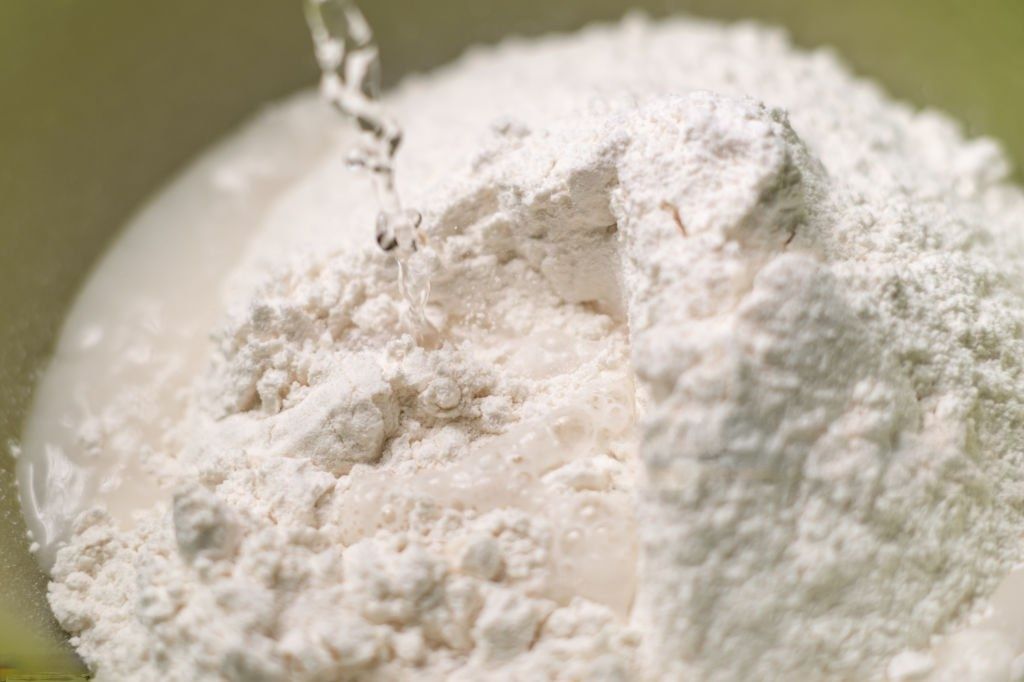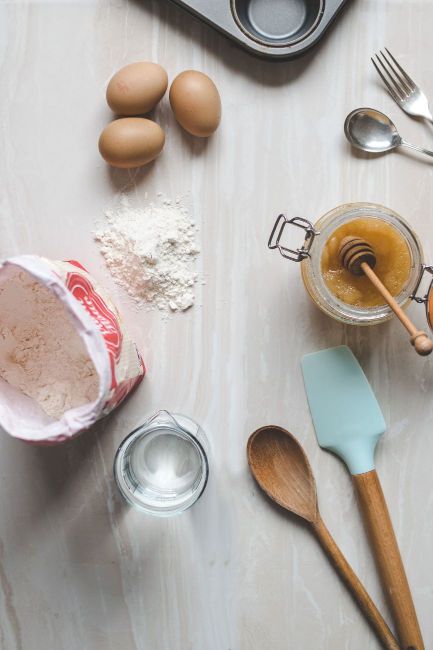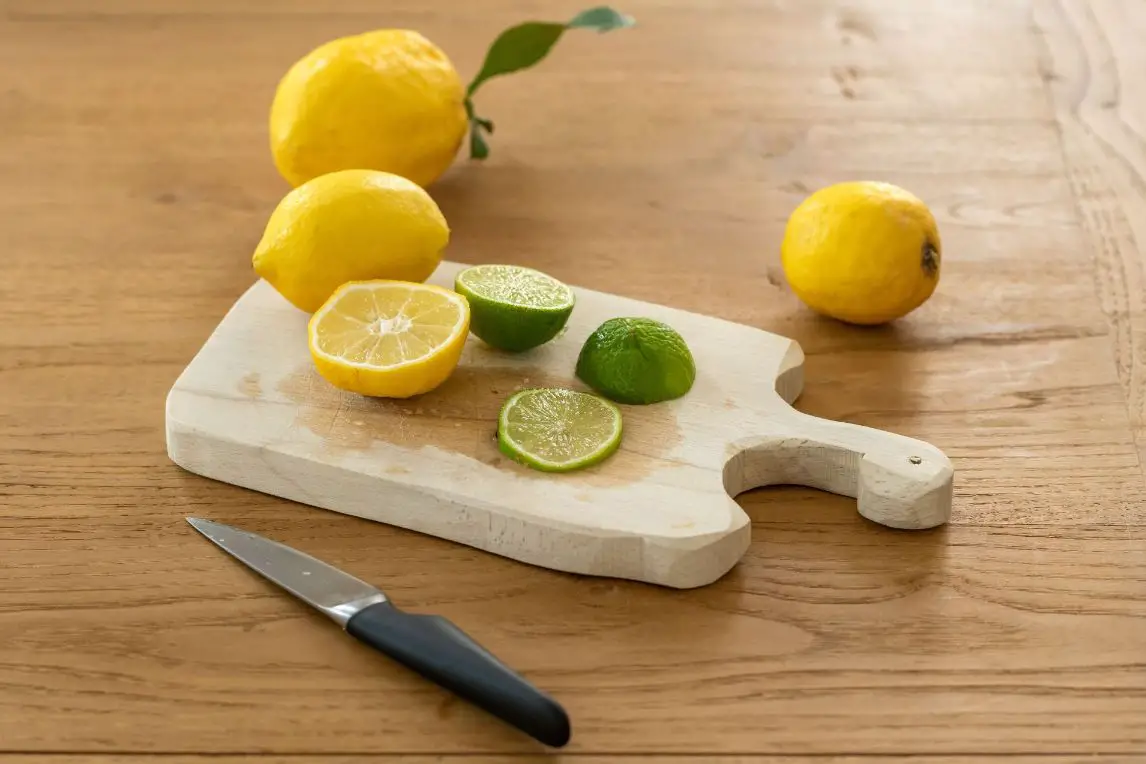Banana bread is a beloved comfort food for many, offering a delightful blend of sweetness and moistness.
However, it can be disheartening when your banana bread turns out to be unexpectedly salty.
In this article, I’ll reveal the common factors that lead to salty banana bread and offer practical ways to fix too much salt in banana bread.
So, if you’ve been wondering, why does my banana bread taste salty? keep reading to find out.
Why Does My Banana Bread Taste Salty – Revealed
Banana bread can taste salty for various reasons, ranging from ingredient proportions to baking techniques.
Here are some potential culprits behind salty banana bread:
1. Overripe Bananas
When it comes to using bananas in your banana bread recipe, it’s important to understand that overly ripe bananas can impart a much stronger, almost bitter taste compared to bananas that are ripe but not overly so.
This intensified flavor can easily be mistaken for saltiness. To avoid this, make sure to use bananas that are ripe but not excessively mushy or darkened in your recipe.
This means selecting bananas that strike a good balance of sweetness without being overly soft and discolored.
2. Excessive Salt
Adding an excessive amount of salt can quickly disrupt the delicate flavor balance of your banana bread.
To prevent this, always adhere to the recipe’s recommended quantity of salt and take care to be precise in your measurements.
This precision is crucial in ensuring that you don’t accidentally over-salt your banana bread.
3. Too much Baking Powder/Soda
Baking powder and baking soda are leavening agents that contain sodium. If you use an excessive amount of these ingredients, they can contribute a salty flavor to your banana bread.

To maintain the right balance, you should always measure these ingredients accurately.
Paying close attention to the leavening agents ensures that they provide the intended rise to your banana bread without making it taste salty.
4. Salted Butter
The type of butter you choose can significantly impact the overall saltiness of your banana bread.

Opting for salted butter over unsalted butter can introduce an unexpected salty element to your recipe.
To have better control over the saltiness, you should use unsalted butter.
However, if you prefer the flavor of salted butter, you can still use it but be sure to adjust the salt content in your recipe accordingly.
By doing this, you can fine-tune the flavors to match your taste preferences and avoid an overly salty outcome.
5. Inadequate Mixing
Properly mixing the ingredients is a critical step in baking, and it plays a role in controlling the distribution of salt throughout the batter.
If the salt is not evenly incorporated into the batter, you will end up with pockets of saltiness in your banana bread.
To prevent this issue, take your time to thoroughly mix all the ingredients, ensuring that the salt is evenly dispersed.
Proper mixing helps create a consistent flavor profile in your banana bread, free from unexpected salty surprises.
6. Salted Nuts
If you’ve decided to include salted nuts like walnuts or pecans in your banana bread recipe, they might contribute to the finished product’s overall salty taste.
This can be especially noticeable if you’ve already added salt to the batter. To address this issue, there are a couple of steps you can take.
First, consider switching to unsalted nuts for your banana bread. This will reduce the added saltiness from the nuts.
Alternatively, you can reduce the amount of salt in your recipe to compensate for the saltiness of the nuts.
7. Low-Quality Flour
The quality of the flour you use plays an important role in the flavor and texture of your banana bread.

Using low-quality or expired flour can introduce unwanted flavors, including a salty taste, into your baked goods.
Make sure to check the expiration date on your flour packaging and store it in an airtight container in a cool, dry place to maintain its freshness.
How To Fix Too Much Salt in Banana Bread? 6 Easy Ways
If you find out that your banana bread has too much salt, don’t worry! Here are some effective ways to help you fix it:
1. Add Sweetness
To counteract the excessive saltiness in your banana bread, one effective method is to introduce sweetness.
You can achieve this by incorporating additional mashed ripe bananas, honey, or sugar into your banana bread batter.
Sweetness can act as a natural counterbalance to saltiness. However, it’s crucial to exercise caution and avoid over-sweetening the batter.
Add these sweet ingredients gradually and taste the batter as you go to ensure you achieve the desired balance between sweet and salty flavors.
2. Make Another Batch Without Salt
Another approach to reducing the saltiness of your banana bread is to prepare a new batch of the recipe, omitting any salt entirely.
Once you have successfully baked this unsalted batch, you can combine it with the over-salted batch.
This method effectively dilutes the overall saltiness and can result in a more palatable final product.
3. Increase the Quantity of Other Ingredients
If you prefer not to create a larger batch, you can adjust the quantities of the other ingredients (excluding salt) to mitigate the saltiness.

Essentially, you are increasing the proportion of these ingredients to counterbalance the excess salt.
For example, you can add more flour, bananas, eggs, and butter to the batter. This helps in diluting the salt’s impact on the overall taste.
4. Add Lemon Juice
Lemon juice can be an effective tool to mask the salty taste in your banana bread.

Start by adding a small amount, typically a teaspoon, of lemon juice to the batter. Thoroughly mix it in to distribute the flavor evenly.
The acidity of the lemon juice can help offset the saltiness, creating a more harmonious taste.
5. Add Nuts or Chocolate Chips
If your banana bread recipe includes nuts or chocolate chips, these can be utilized to counterbalance the saltiness.
By incorporating more of these ingredients into your batter, you introduce additional flavors and textures that can help diminish the perception of saltiness.
They offer a pleasant contrast that can make the bread more enjoyable.
6. Serve With Neutral Accompaniments
If your banana bread is already baked and still too salty, consider serving it with neutral accompaniments like plain yogurt or unsalted butter.
When consumed together, these neutral elements can help balance out the flavors of the bread.
They act as a complementary backdrop, making the saltiness less prominent and enhancing the overall eating experience.
Why Does My Banana Bread Taste Salty – Conclusion
In conclusion, while it can be disappointing when your banana bread turns out unexpectedly salty, several factors contribute to this issue, ranging from overripe bananas to excessive salt, leavening agents, or butter that you use.
The quality of flour, salted nuts, and mixing techniques also play a role in the overall saltiness of your banana bread.
However, there are practical solutions to fix overly salty banana bread. You can introduce sweetness with ingredients like mashed ripe bananas, honey, or sugar, add lemon juice to mask the saltiness, or incorporate more nuts or chocolate chips to balance the flavors.
With these strategies in mind, you can rescue your salty banana bread and still enjoy a delicious and satisfying treat.
Frequently Asked Question
What Does Salt Do in Banana Bread?
Salt in banana bread enhances the overall flavor by balancing sweetness and highlighting the banana flavor.
It also strengthens the structure of the bread’s proteins, giving it a better texture and preventing it from being overly sweet.
The salt acts as a flavor enhancer, making the banana bread taste more delicious and well-rounded.
Can You Use Salted Butter for Banana Bread?
Yes, you can use salted butter for banana bread, but you may need to adjust the amount of additional salt in the recipe, consider reducing the added salt by about 1/4 to 1/2 teaspoon for every 1/2 cup (1 stick) of salted butter you use.
This adjustment helps maintain the desired balance of flavors while preventing the bread from becoming too salty.

